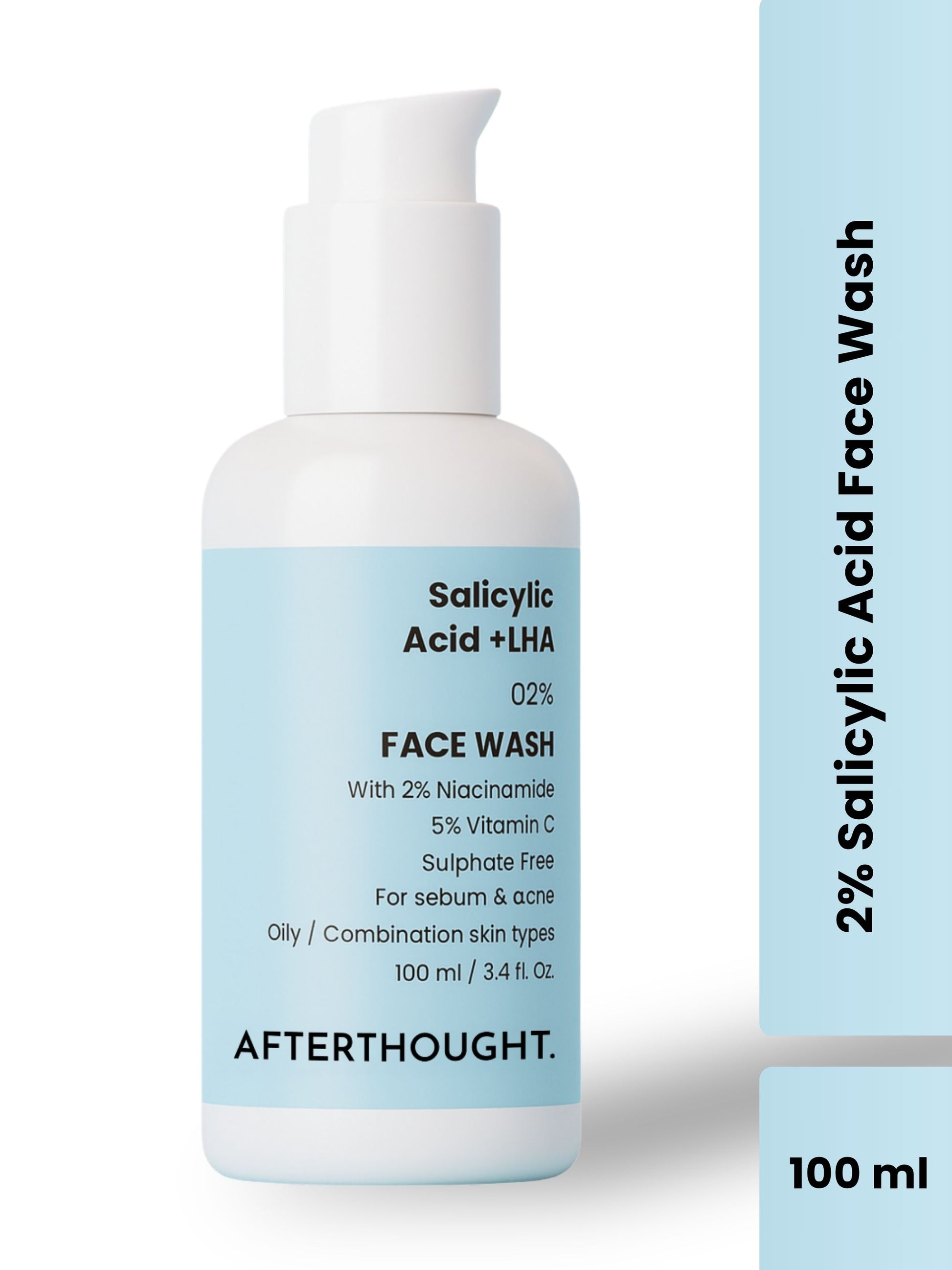What Is The Difference Between Face Wash and Cleanser?
Welcome to Afterthought. In the realm of skincare, the multitude of product options can be overwhelming, especially when it comes to facial cleansers. Among the various choices, two common terms often emerge: face wash and cleanser. While they might seem interchangeable, there are distinct differences between these two products, each serving unique purposes in skincare routines.
What is Face Wash?
Face washes are cleansing products designed specifically for the face. They typically come in gel, foam, or cream formulations and are used to remove dirt, oil, makeup, and other impurities from the skin's surface. Face washes often contain surfactants, which are ingredients that help to break down oil and dirt, allowing them to be rinsed away easily with water.
Additionally, many face washes incorporate ingredients tailored to specific skin types or concerns, such as acne-fighting ingredients for oily or acne-prone skin, or hydrating ingredients for dry skin.
The Benefits of Face Wash:
- Deep Cleansing: Face washes effectively cleanse the skin, removing impurities that can accumulate throughout the day.
- Refreshing Sensation: Many face washes provide a refreshing sensation, leaving the skin feeling clean and rejuvenated.
- Targeted Formulations: Face washes are available in formulations tailored to different skin types and concerns, allowing users to address specific skincare needs.
What is Cleanser?
Cleansers, on the other hand, encompass a broader category of skincare products that are used to cleanse the skin. While face washes are a type of cleanser, not all cleansers are face washes. Cleansers can include various formulations such as oils, balms, milks, or micellar waters.
Unlike face washes, which are specifically designed for facial use, cleansers can be used on the face as well as other parts of the body, such as the neck and décolletage.
The Benefits of Cleanser:
- Versatility: Cleansers are versatile skincare products that can be used on different areas of the body, offering convenience and flexibility.
- Gentle Formulations: Many cleansers are formulated to be gentle on the skin, making them suitable for daily use, even for those with sensitive skin.
- Makeup Removal: Some cleansers, particularly oil-based ones, are effective at removing stubborn makeup, including waterproof mascara and long-wear foundation.
Choosing the Right Skincare Product:
When selecting between a face wash and a cleanser, it's essential to consider factors such as skin type, skincare goals, and personal preferences. Individuals with oily or acne-prone skin may benefit from a face wash formulated with ingredients like salicylic acid or benzoyl peroxide to help control excess oil and prevent breakouts. Conversely, those with dry or sensitive skin may prefer a gentle, hydrating cleanser that replenishes moisture and soothes irritation.
Additionally, individuals who wear makeup regularly may opt for a cleanser with makeup removal capabilities, such as an oil-based cleanser or micellar water, to ensure thorough cleansing without stripping the skin of its natural oils.
Conclusion:
In conclusion, while face washes and cleansers both serve the primary purpose of cleansing the skin, they differ in formulation, application, and versatility.
Face washes are specifically designed for facial use and often contain targeted ingredients for different skin types and concerns, providing deep cleansing and refreshing benefits.
On the other hand, cleansers encompass a broader range of products that can be used on both the face and body, offering versatility and gentle cleansing options suitable for various skincare needs.
Ultimately, choosing the right skincare product depends on individual preferences, skin type, and specific concerns. By understanding the differences between face washes and cleansers, individuals can make informed decisions to achieve healthy, radiant skin.









